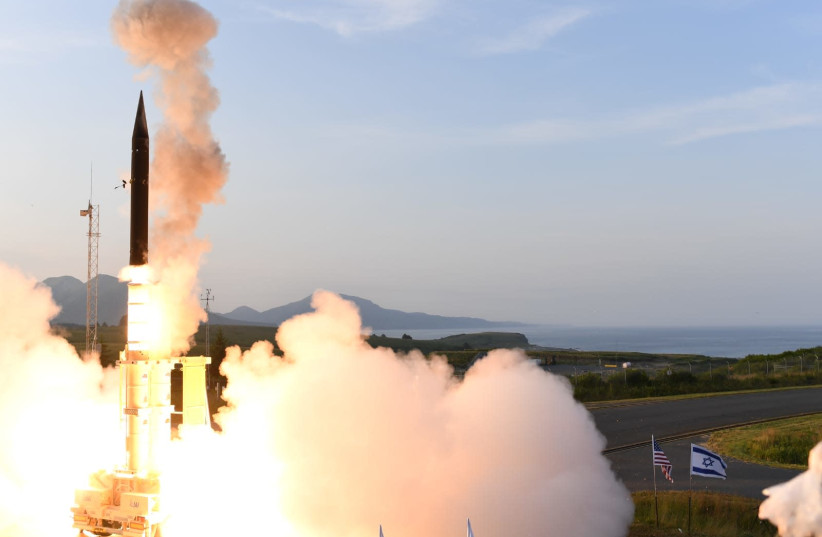As Germany pushes forward in its procurement of Israel’s Arrow 3 air-defense system, Defense Minister Benny Gantz spoke with his American counterpart Lloyd Austin on the proposal that, if allowed, would be the largest defense deal in Israeli history, reaching a sum of €3 billion ($2.93b.).
Gantz spoke with Austin late Wednesday night about the developments in the proposal that would see Jerusalem sell the ballistic air-defense system to Berlin, the first time the system would be sold to an international customer.
According to a report on Calcalistech.com, Boeing will be responsible for manufacturing certain parts of the interceptor. Germany will also purchase American Patriot surface-to-air missiles as part of the deal.
Germany has requested that the first Arrow system be operational in the country by 2025.
What is the Arrow System?
The Arrow 3, one of Israel’s most advanced air-defense systems, is capable of intercepting ballistic missiles at altitudes of over 100 km. (62 miles), with a reported range of up to 2,400 km. (1,491 miles). The system, developed by Israel Aerospace Industries, includes components developed in the US, which has poured billions into the system.

The acquisition of the system is expected to be part of the European development of a joint air-defense program called the European Sky Shield Initiative. It will include 14 NATO member countries: Belgium, Bulgaria, the Czech Republic, Estonia, Germany, Hungary, Latvia, Lithuania, the Netherlands, Norway, Slovakia, Slovenia, Romania and the United Kingdom. Finland, whose application to NATO is pending, will also take part.
A letter of intent was signed in October in Brussels initiating the development of the Sky Shield, which is being spearheaded by Berlin and aims to create a European air-defense system through the common acquisition of air defense equipment and missiles by European nations. The system would field off threats at close range such as drones, as well as medium-to-long-range threats like ballistic and cruise missiles.
German Chancellor Olaf Scholz made an initial request for the system when he met with then-prime minister Naftali Bennett in March. And while Israel approved the sale, according to a report by Jewish News Service, the delay in the export is due to a lack of approval by the United States, which has previously denied requests by other countries to purchase the system.
But the war in Ukraine has spurred a reset of NATO posture, with allies significantly increasing their defense budgets as well as sending military equipment to Ukraine or neighboring countries. It has also raised hopes that Washington will green-light the sale of the Arrow 3 to Berlin.
NATO Deputy Secretary-General Mircea Geoana said the creation of a European missile-defense initiative was “crucial” following Russia’s invasion of Ukraine.
“It is important that things now move quickly with regard to the procurement of Patriots, with regard to the procurement of Iris-T, and of course, with regard to the procurement of a defense system that goes beyond that,” he said, referring to the Arrow 3.
Following Russia’s invasion of Ukraine, Germany increased its defense budget to 2% of GDP and said it would set up a special fund of €100b. ($97.6b.) in order to swiftly upgrade its armed forces.
It is understood that Israel will play a key role in helping Germany’s force buildup.
